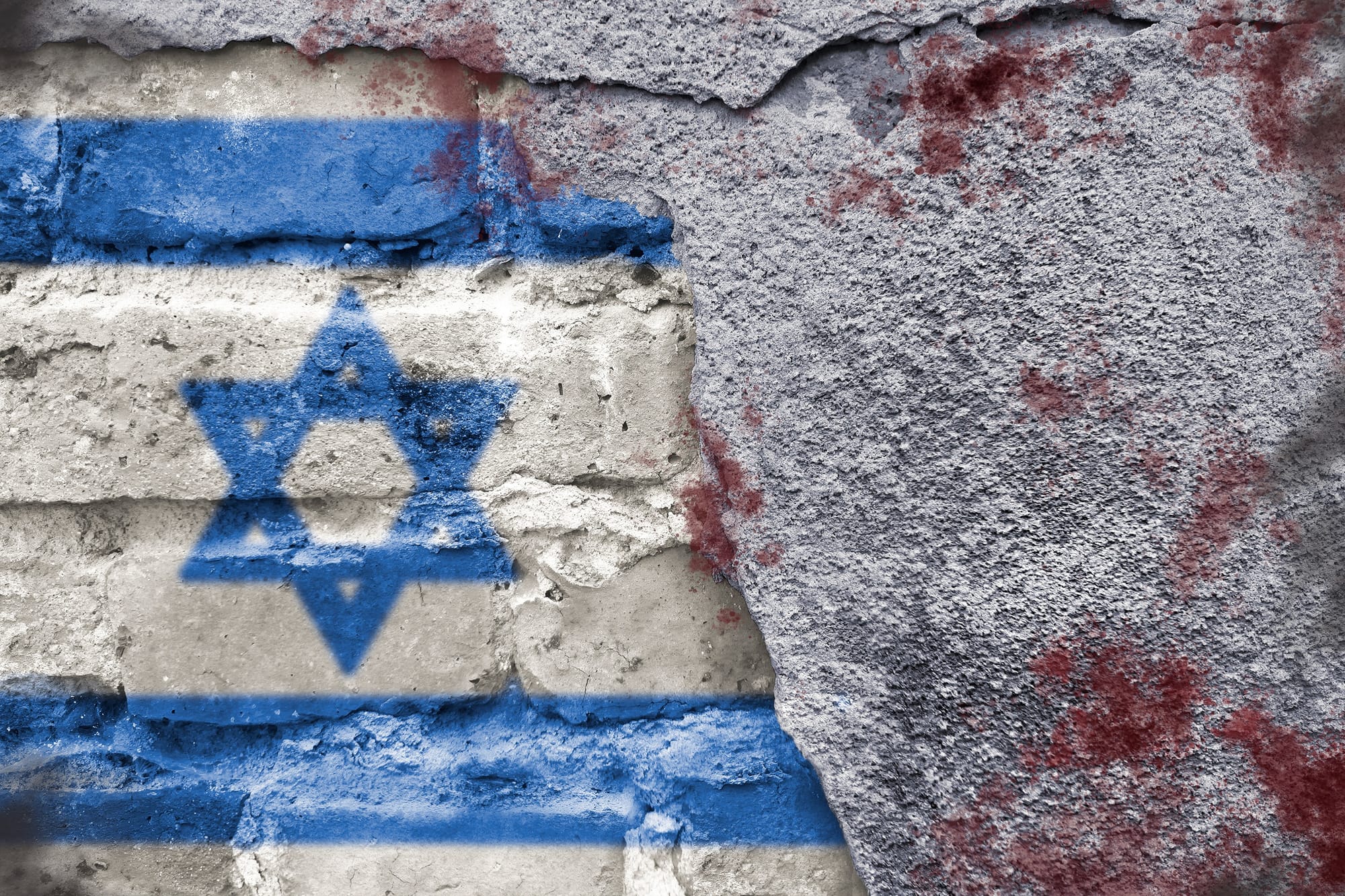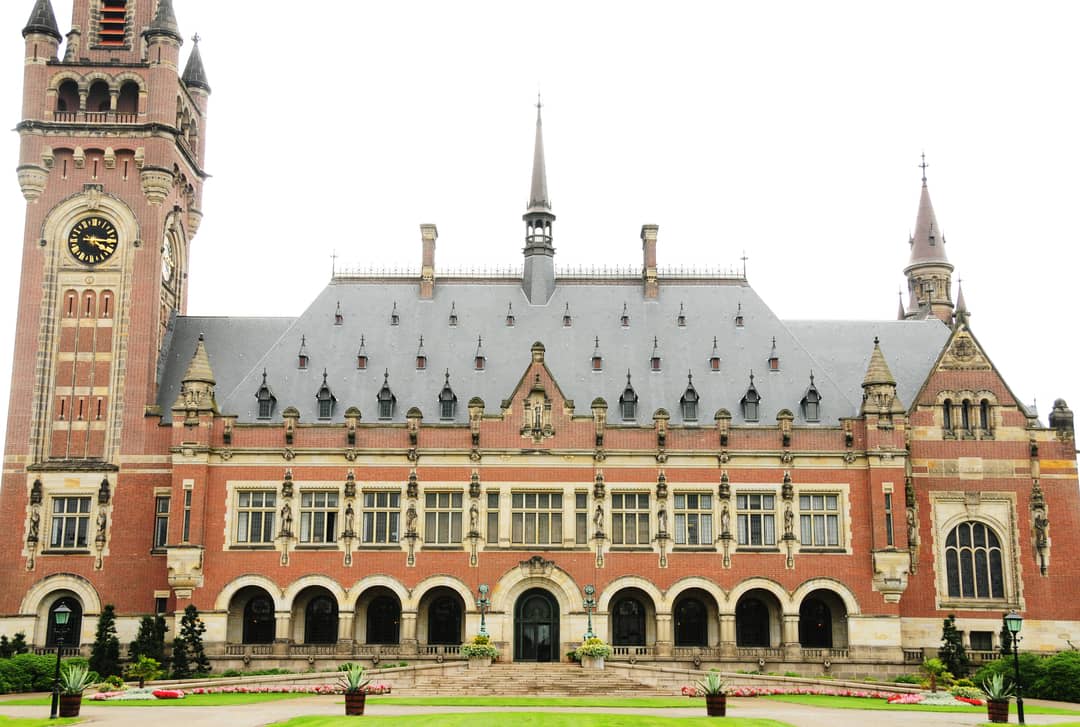
On 29 December, 2023, South Africa instituted proceedings at the International Court of Justice (ICJ) against Israel.
The ICJ, also known as the World Court, is the main judicial organ of the UN, and has its seat at the Peace Palace in The Hague (below), in the Netherlands.
The ICJ consists of 15 international judges, including, at present, an Australian judge – Her Excellency Hilary Charlesworth.

The ICJ has jurisdiction to give advisory opinions on questions of international law when asked by the UN General Assembly, and it can hear disputes between states, as long as the states involved have agreed to the matter being adjudicated by the ICJ.
South Africa has alleged Israel is responsible for committing acts of genocide and/or for failing to prevent genocide against Palestinians in Gaza.
The prohibition of genocide is known as a “peremptory norm” of international law, which means it’s recognised as a norm from which no derogation is permitted.
Genocide is also the subject of an international treaty to which South Africa and Israel are party.
The 1948 Convention on the Prevention and Punishment of the Crime of Genocide (Genocide Convention) provides that any dispute between state parties to the convention on matters arising out of the convention shall be submitted to the ICJ.
Claiming Israel is in breach of its obligations under the Genocide Convention, South Africa is hoping to activate the ICJ’s jurisdiction by invoking the convention’s dispute resolution clause.
Requested provisional measures
Because matters adjudicated by the ICJ take a notoriously long time, South Africa has requested the ICJ issue orders for provisional measures to:
“... protect against further, severe and irreparable harm to the rights of the Palestinian people under the Genocide Convention.”
Under the Rules of the Court, a request for provisional measures takes priority over all other cases, which is why the ICJ convened two days of hearings last week to allow South Africa and Israel to present their arguments in relation to the requested measures.
The provisional orders South Africa has asked for include:
- the requirement of Israel to immediately suspend its military operations in Gaza
- to take all reasonable measures to prevent genocide, and
- to desist from the commission of any acts that might amount to genocide.
The legal elements of the crime of genocide
It’s important to note that the ICJ is not a criminal court – the prosecution and punishment of individuals accused of committing international crimes is the remit of the International Criminal Court (ICC), which is entirely separate from the ICJ.
The ICJ deals instead with questions of state responsibility rather than individual criminal responsibility. The ICJ will, however, need to review evidence of alleged crimes, and consider the legal elements of the crime of genocide in order to adjudicate this particular dispute.
To make a finding that genocide has been committed, both the “physical” and “fault” elements of the crime must be present. Physical acts of genocide include killing, causing serious bodily or mental harm, inflicting conditions of life calculated to bring about the destruction of a group, imposing measures to prevent births, and forcible transfer of children to another group.
Israel accuses South Africa of ‘profound distortion’ at ICJ genocide hearing https://t.co/bsDOt4yg9M— The Guardian (@guardian) January 12, 2024
But on their own, these acts are not sufficient to indicate that genocide has occurred. The physical acts must have been committed with the specific intent “to destroy in whole or in part a national, ethnical, racial or religious group as such”.
South Africa is arguing that in the wake of the Hamas attacks, Israeli leaders have used “genocidal rhetoric”, which demonstrates a specific intent to destroy Palestinians in Gaza.
Israel’s defence team (which includes Monash alumni Tal Becker) has argued that Israel is “in a war of defence against Hamas – not the Palestinian people”, and that any civilian casualties that occur in the pursuit of legitimate military targets are a regrettable part of war, and permitted by the laws of armed conflict.
The Gambia v Myanmar precedent
It’s not the first time a state has initiated a case at the ICJ in relation to an alleged genocide committed on the other side of the world.
Israel thinks of genocide in terms of the Holocaust, but the “final solution” is not the only version. Genocide can be a means, not only an end. The ICJ issued provisional measures against Myanmar when it killed only enough Rohingya to send them fleeing. https://t.co/pnGn399dki— Kenneth Roth (@KenRoth) January 13, 2024
In 2019, The Gambia invoked the Genocide Convention’s dispute resolution clause to take Myanmar to the ICJ, accusing it of committing genocide against the Rohingya ethnic minority.
In that case, the court issued the requested provisional measures, and then held that the Genocide Convention’s obligation to prevent and punish genocide was a duty that individual states have to the entire international community.
The merits of the specific question of whether Myanmar has committed genocide is ongoing, but South Africa used this case as a precedent to bring a claim against Israel.
An uncertain outcome
The ICJ will now determine whether there’s a real and imminent risk of irreparable prejudice to the rights of the Palestinian people in Gaza before ruling on the provisional measures requested by South Africa.
This will likely take several weeks. Then the proceedings will continue on the question of whether Israel has committed genocide, although their resolution will almost certainly take years.
If South Africa’s provisional measures are granted in the interim, it remains to be seen whether Israel will heed them.
The ICJ has no enforcement powers, and there are no legal consequences for a state that does not obey ICJ rulings. There may, however, be considerable reputational and other political costs if Israel ignores the court.
This case, and The Gambia’s case against Myanmar, will nevertheless be a litmus test of state responsibility for genocide under international law.





